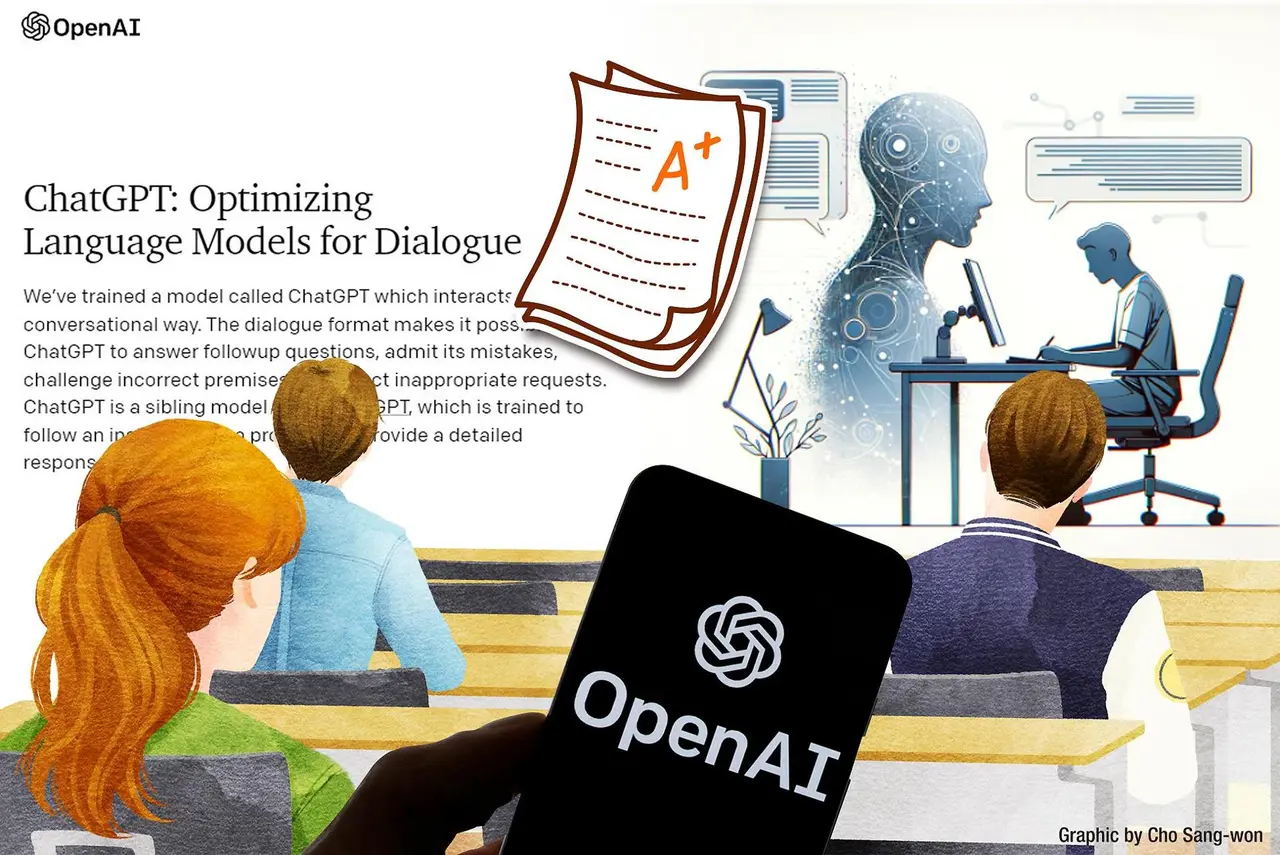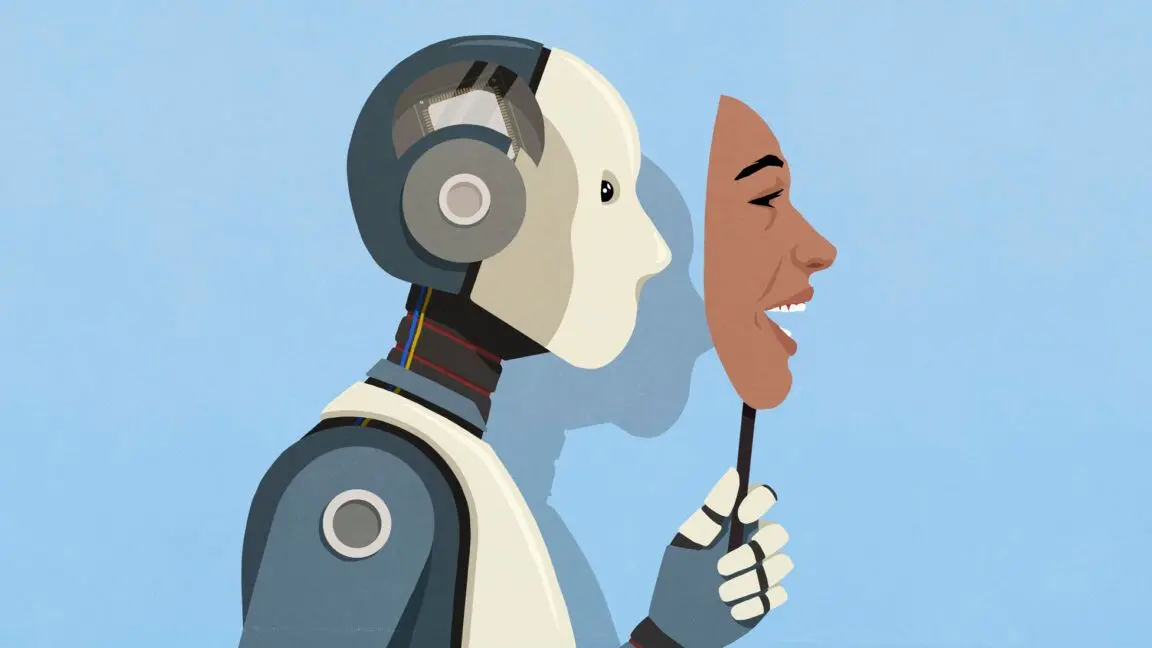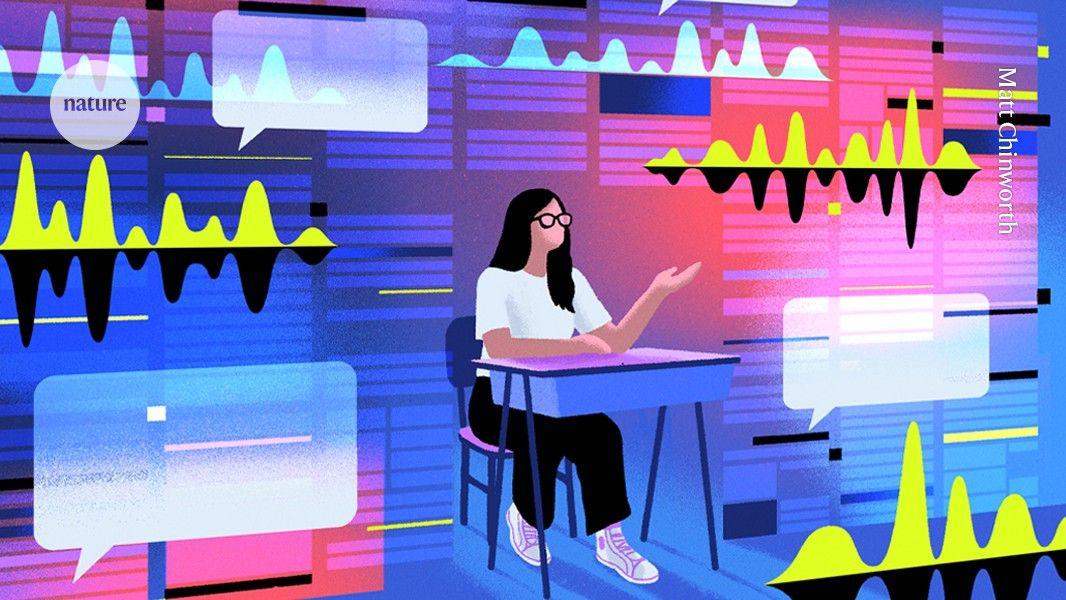AI Cheating Scandals Rock South Korea's Elite Universities, Sparking Educational Reform Debate
3 Sources
3 Sources
[1]
Cheating scandals at top universities prompt rethink of education in digital era - The Korea Times
Scandals show how outdated teaching methods struggle to keep up with technology A string of artificial intelligence (AI)-related cheating scandals at Korea's prestigious "SKY" universities -- Seoul National University, Yonsei University and Korea University -- has sparked renewed scrutiny of higher education in the digital era. As AI tools become a routine part of student life, the incidents are prompting urgent questions about whether universities must rethink how they teach and assess students. About 190 students at Yonsei University were caught cheating on a midterm exam for a course on natural language processing and ChatGPT, reigniting concerns over academic integrity in the age of cutting edge digital technologies, including AI. The professor overseeing the course has vowed to take strict action against students caught cheating. Those who come forward voluntarily will receive a zero on the midterm but avoid further penalties, while students who do not turn themselves in could face disciplinary measures, including short-term suspension, in line with university regulations, the professor said. With about 600 students enrolled, the course was conducted entirely online, and the midterm exam was also administered remotely through a designated website, where students answered multiple-choice questions. After allegations of cheating emerged, a poll conducted in an online community used by Yonsei students revealed the scale of the issue: Among 353 respondents, roughly 190 admitted to using unauthorized methods during the exam, while 163 said they completed it on their own. Similar cheating allegations have also surfaced at Seoul National University. During a midterm exam last month for a statistics course, some students were found to have used AI tools to solve problems. Unlike at Yonsei University, the exam was conducted in person using computers in a classroom, and the school had explicitly warned students not to use AI during the test. The university is reportedly considering nullifying the midterm results and holding a retest. The online lecture format itself has come under scrutiny following a mass cheating scandal at Korea University. The course in question -- a massive open online class with over 1,400 students -- required participants to watch recorded lectures and complete multiple-choice exams remotely. Such large-scale virtual courses, which rapidly expanded during the COVID-19 pandemic, are now facing questions over how to ensure academic integrity in an era of remote learning. During the midterm exam, about 500 students were caught exchanging answers in a group chat online. The test was conducted entirely online, without any proctoring tools such as camera monitoring or remote exam security software. Calls for clear AI guidelines Many students expressed frustration over the large-scale cheating incidents, saying those who broke the rules should be held accountable. Still, they acknowledged that the use of such digital tools has become almost unavoidable in today's learning environment. In Korea University's online community, many students criticized the school and faculty for taking disciplinary action only after the cheating scandal erupted, despite offering online lectures and exams without clear guidelines on academic integrity. They argued that punishing students retroactively, without first setting clear rules for remote learning, was outdated and unfair. "It's an indispensable tool for students these days," said Woo Jung-sik, a senior at Hanyang University. "Some professors prohibit its use, while others encourage it -- but in reality, students use it anyway." Another student, surnamed Lee, a senior in the College of Education at Korea University, noted that many students are now actively using AI platforms such as Perplexity and Gemini, which have recently become available for free through university promotions. "Effectively using fast-evolving AI technology is also a skill," Lee said. "I don't think simply using AI tools is inherently wrong." Another senior from the same college, surnamed Kim, criticized the current education system. "In this rapidly changing AI era, assignments that can be easily solved with AI are losing their meaning." Experts say that the recent scandals highlight a deeper challenge facing universities -- the urgent need to redefine teaching and learning in the age of artificial intelligence. "This reflects the reality that traditional teaching methods can no longer remain the same in the AI era," said Park Joo-ho, a professor at Hanyang University's Department of Education. Park stressed that higher education must evolve to foster creativity, rather than relying on conventional lecture-based instruction. "Most Korean universities still lack clear academic guidelines on AI use in coursework and exams -- an issue that has come under sharper scrutiny following the recent incidents," he added. Song Ki-chang, an honorary professor of education at Sookmyung Women's University, expressed concern that it is difficult for universities to completely move away from testing students on basic knowledge. "Understanding and application are all based on foundational knowledge," he said. "It would be problematic for higher education institutions to skip the process of evaluating whether students have properly acquired that knowledge." Song added that the time has come for universities to establish clearer guidelines on AI use. "It's impossible to completely ban the use of AI," he said. "But without clear standards, students could become overly dependent on it."
[2]
Yonsei professor threatens to suspend students in mass AI cheating scandal
The case raises important questions about the ethics and regulation of artificial intelligence use on college campuses in Korea Amid suspicions that a large number of Yonsei University students used ChatGPT to solve questions on a midterm exam, the professor in question has threatened to give 0 points to anybody who admits to having cheated -- and to suspend those who stay silent. The incident is an example of how the widespread use of artificial intelligence is negatively impacting universities, where research ethics play a critical role. The Hankyoreh learned Sunday that a professor of a class titled "Natural Language Processing and ChatGPT" at the Sinchon campus of Yonsei University posted on a campus message board on Oct. 29 that he would give a zero on the midterm exam to the large group of students caught cheating. In mid-October, the professor administered a remote midterm exam for the 600 or so students they instruct on the subject of generative AI, including natural language processing and large language models. As an anti-cheating measure, the instructor asked the students to submit videos showing their hands, faces and computer screen during the test. But evidence emerged that some of the students cheated anyway by regularly looking at areas out of the video frame or programs hidden under other windows on their computer screens. "Since some of my teaching assistants want to give students another chance, I will give a 0 on the midterm exam to any students who fess up. For cheaters who don't take me up on that offer, I will request a suspension under school regulations," the professor said. According to one estimate, over 200 students in the class cheated on the exam. As of 2 pm on Sunday, 202 people admitted to cheating on a thread titled "Let's have an honest vote" posted on Oct. 30 on Everytime, an online community only accessible to individuals currently enrolled at Yonsei. In a second notice posted on Oct. 30, the professor once again encouraged students to turn themselves in. "When any suspicious behavior is detected, four or five teaching assistants and I scrutinize the video at one-second intervals. This review is not some kind of 'game' designed to punish or stamp out cheating. Rather, as members of an institution of higher education, we're trying to give students a chance to learn from their mistakes," the professor said. Some commentators say that given the near-universal use of AI by university students, universities need to set clear ethical guidelines for its use and instruct students in those guidelines. According to a study of 726 students in four- to six-year university programs carried out by the Korea Research Institute for Vocational Education and Training and the Korean Council for University Education last year, 91.7% of students used AI to complete assignments and search for materials, even as 71.1% of universities around the country have not established guidelines for the use of generative AI. By Chung In-seon, staff reporter
[3]
Yonsei University plans public hearing amid AI-linked cheating scandal - The Korea Times
Yonsei University, one of the nation's leading institutions, is pushing to hold a public hearing on the ethics of artificial intelligence (AI) as it grapples with a high-profile mass cheating scandal involving the use of AI. According to sources, the Seoul-based university is preparing to organize an emergency hearing hosted by its Institute for AI and Social Innovation to address various issues, including the increasing transition to online classes and exams, the evolving functions and expanded usage of AI, and the necessary changes to teaching and evaluation methods. "We're planning a forum that all staff and students can participate in," a university official told Yonhap News Agency. "We are looking at the recent cheating issue as an opportunity to discuss the ethical awareness needed for future higher education." The mass cheating allegedly took place during a midterm exam for a Natural Language Processing and ChatGPT class that took place online on Oct. 15. Dozens of students are believed to have cheated using ChatGPT and other AI tools by turning the angle of their computer cameras or opening multiple programs on their monitors to circumvent a requirement to submit videos showing their screens, hands and faces during the exam. Some 600 students are believed to be enrolled in the class. "Around 40 students have admitted to cheating, while 10 suspected of cheating have not owned up yet," a university official said. "If we confirm cheating by those who have not come forward, we could consider taking disciplinary action." One student posted a vote on an online school bulletin asking how many of the exam takers had cheated. Of the 387 people who took part in the vote, 211 admitted to having cheated, while 176 said they took the exam without outside help.
Share
Share
Copy Link
Mass cheating incidents involving AI tools at prestigious SKY universities expose the urgent need for clear guidelines and reformed teaching methods in the digital age. Hundreds of students used ChatGPT and other AI platforms during exams, prompting calls for educational transformation.
Widespread Cheating Incidents Expose Educational Crisis
South Korea's most prestigious universities are grappling with unprecedented AI-related cheating scandals that have exposed fundamental flaws in traditional educational approaches. The incidents span across the elite "SKY" universities - Seoul National University, Yonsei University, and Korea University - affecting hundreds of students and prompting urgent calls for educational reform
1
.
Source: Korea Times
The most significant incident occurred at Yonsei University, where approximately 190 students out of 600 enrolled were caught cheating on a midterm exam for a "Natural Language Processing and ChatGPT" course. The irony was not lost on observers that students used AI tools to cheat in a class specifically designed to teach about AI technology
2
.Scale and Methods of Academic Misconduct
The cheating methods employed by students demonstrated sophisticated understanding of digital surveillance limitations. During Yonsei's online midterm exam, students were required to submit videos showing their hands, faces, and computer screens as anti-cheating measures. However, many circumvented these safeguards by strategically angling their cameras or opening hidden programs behind other windows
3
.
Source: Hankyoreh
A poll conducted on Everytime, an online community for Yonsei students, revealed the shocking extent of the misconduct. Among 353 respondents, roughly 190 admitted to using unauthorized methods during the exam, while 163 claimed they completed it independently
1
.Similar incidents plagued other prestigious institutions. At Seoul National University, students used AI tools during an in-person statistics exam despite explicit warnings against such usage. Korea University faced its own crisis when approximately 500 students were caught exchanging answers in group chats during an online exam for a massive open online course with over 1,400 enrolled students
1
.Institutional Responses and Disciplinary Measures
University administrators have responded with varying degrees of severity. The Yonsei professor overseeing the affected course implemented a controversial policy offering students who voluntarily confess a zero grade on the midterm without additional penalties, while threatening suspension for those who remain silent
2
."When any suspicious behavior is detected, four or five teaching assistants and I scrutinize the video at one-second intervals," the professor explained, emphasizing that the review process aimed to provide learning opportunities rather than punishment
2
.Yonsei University is taking a proactive approach by planning a public hearing through its Institute for AI and Social Innovation. The forum will address online education transitions, AI's evolving functions, and necessary changes to teaching methodologies
3
.Related Stories
Student Perspectives and Systemic Issues
Student reactions reveal deep frustration with current educational systems. Many argue that AI tools have become indispensable for modern learning, creating ethical dilemmas about their appropriate use. "It's an indispensable tool for students these days," explained Woo Jung-sik, a Hanyang University senior, noting the inconsistency in professor attitudes toward AI usage
1
.Students also criticized retroactive punishment without clear guidelines. Korea University students particularly objected to disciplinary action following scandals when institutions had failed to establish proper remote learning protocols
1
.Expert Analysis and Educational Reform Calls
Educational experts view these incidents as symptomatic of broader institutional failures to adapt to technological advancement. Park Joo-ho, a Hanyang University education professor, emphasized that "traditional teaching methods can no longer remain the same in the AI era," calling for creativity-focused approaches rather than conventional lecture-based instruction
1
.
Source: Korea Times
Research supports these concerns about institutional preparedness. A study by the Korea Research Institute for Vocational Education and Training found that 91.7% of university students use AI for assignments and research, yet 71.1% of universities lack established guidelines for generative AI use
2
.References
Summarized by
Navi
[1]
Related Stories
University of Illinois Students Caught Using AI to Apologize for Cheating, Highlighting Academic Integrity Crisis
30 Oct 2025•Entertainment and Society

AI in Education: Reshaping Learning and Challenging Academic Integrity
12 Sept 2025•Technology

Universities scramble to rethink exams as 92% of UK students now rely on AI for coursework
03 Dec 2025•Entertainment and Society

Recent Highlights
1
Google Gemini 3.1 Pro doubles reasoning score, beats rivals in key AI benchmarks
Technology

2
Meta strikes up to $100 billion AI chips deal with AMD, could acquire 10% stake in chipmaker
Technology

3
Pentagon threatens Anthropic with supply chain risk label over AI safeguards for military use
Policy and Regulation





